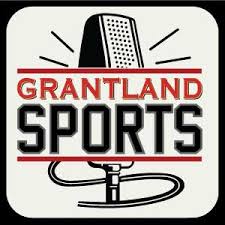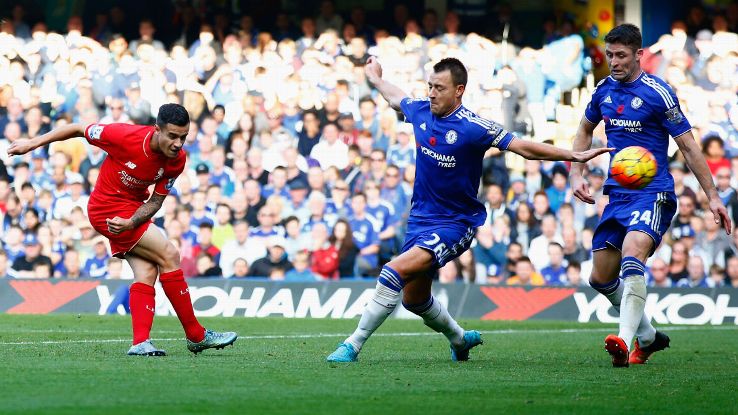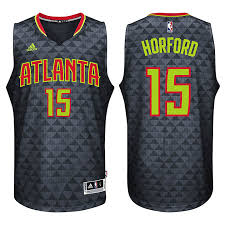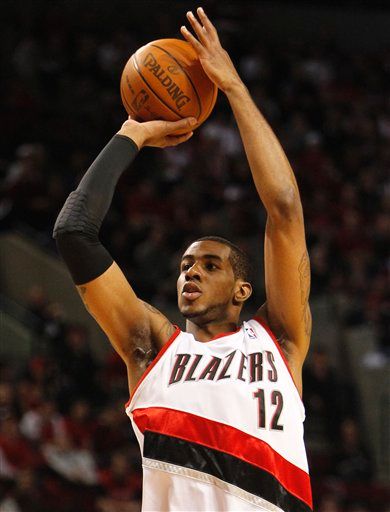For your Holiday weekend viewing: The 8 Man Rotation's favorite sports movies
We're heading into a long holiday weekend, at least in the USA, and it is quite possibly the greatest holiday of them all - Thanksgiving. Eating, drinking, sleeping, eating some more, taking in some sports on TV or in person, shopping - it is the quintessential American holiday no doubt.
Since you will likey spend large parts of the next four or five days in turkey/stuffing/mashed potato coma, and will be for long stretches glued to your sofa and/or La-Z-Boy chairs, you need something to keep you passively entertained. But fear not gentle readers, The 8 Man Rotation crew, (Kris Dunn, Lance Haun, Tim Sackett, Matt 'akaBruno' Stollak, and yours truly), have you covered.
Because what you really want to do this holiday weekend is catch up on some of the greatest sports movies ever made and we at The 8 Man Rotation take sports, and sports movies very seriously. So seriously that we spent a collective 17 emails and 37 minutes coming up with our favorites which we wanted to share. So fire up your Netflix and have fun with these selections this weekend:
The 8 Man Rotation's Favorite Sports Movies.
Tim Sackett:
Any Given Sunday: All you have to say is “Pacino’s Speech” - maybe the best movie coach speech of all time! "The inches we need are everywhere around us. They are in ever break of the game every minute, every second. On this team, we fight for that inch. On this team, we tear ourselves, and everyone around us to pieces for that inch. We CLAW with our finger nails for that inch. Cause we know when we add up all those inches that's going to make the fucking difference between WINNING and LOSING, between LIVING and DYING."
Hoosiers: Jimmy Motherf$%&!&ing Chitwood. When Coach Dale calls the play in the huddle to win the game, using Jimmy as a decoy and Jimmy says just pass the ball to me, I’ll make the shot. Every basketball kids fantasy. Classic over-coaching as well. Just give the ball to your best player and win or lose knowing you gave it your best shot with your best talent.
White Man Can’t Jump: The beginning of main stream trash talking! Before this movie you only talked trash if you could back it up. After this movie, trash talking became an art form on the court and off. The movie also addressed, and made fun, so many stereotypes as well. This wasn’t the norm in 1992, which made it somewhat shocking to watch at the time.
Bonus sports movie footage for the, underrated, Tom Cruise fans. Top three Tom Cruise sports movies:
- All The Right Moves. It was 1983 and I was in Love with Tom’s co-star in the movie, a young Lea Thompson. Coming of age football. Friday Night Lights, twenty years before it became cool.
- Days of Thunder. Cole Trickle might be the best Nascar name that isn’t a real Nascar name! Nicole Kidman, pre-Mrs. Cruise, as a co-star, I’m still wondering how they made him taller than her!
- Jerry Maguire. The best non-sports, sport movie of all time. NFL, Agents and the line I say to my wife almost daily, “Don’t Ever Stop F$%&$% Me” to lead the movie off!
VIDEO - Hoosiers, 'I'll make it':
Lance Haun:
My two favorite sports movies, Major League and Caddyshack, are two sports I absolutely hate watching and playing. Neither are really critically acclaimed but if I see one of these come on cable, I'm watching them until the end. Caddyshack gets the nod because it's infinitely quotable, has unnecessary nudity, and includes Bill Murray and an actually funny Chevy Chase. My favorite quote that I plan to use as a father: "You'll get nothing, and like it!"
VIDEO: Caddyshack, 'Right in the lumberyard'
Matt 'The Professor' Stollak:
As I said in one of the HR Happy Hour #8ManRotation shows, we blog about sports and HR because we are looking to connect with our fathers. That same theme carries out in movies about sports:
Field of Dreams - That movie is one long play so that Kevin Costner can have one last catch with his dad
Breaking Away - Four townies trying to make it in Bloomington, IN and win the Little 500 bike race. Hard to beat the exhilaration when Dave races against the semi-trucks on the highway. But, all Dave really wants to do is be accepted by his dad, and he takes some pride when he sees his father try bike riding at the end of the film.
VIDEO - Breaking Away trailer:
Kris Dunn:
He Got Game: Denzel, Spike Lee, a backdrop of hoops and Ray Allen starring as “Jesus Shuttlesworth”. I love the story of a complicated father/son relationship as Denzel tries to parlay his way out of prison by encouraging his son (Jesus) to play at Big State U, which just happens to be the school of choice for the governor. Great music spanning a lot of tastes from dramatic orchestra scores to Public Enemy. Spike Lee perspective in Camera shots. Fun fact: One of my sons got asked at church at a young age what the last name of Jesus (son of god, not Ray Allen) was. That’s a trick question in a church setting. My young son didn’t miss a beat – he raised his hand like Horseshack in Welcome Back Kotter and enthusiastically said, “Shuttlesworth”. Welcome to the Dunn family, where everything has a hoops influence.
Bull Durham: You haven’t lived until you’ve had a son who’s played baseball and coached with another guy who knows all the lines to this movie. The game in front of you actually becomes secondary. You sit down next to a 10 year old in the dugout and say, “get a notepad, because it’s time to practice your cliches.” Two minutes later, the kid is repeating the wisdom of Crash Davis - “I just hope I can help the team” and “It’s a simple game – you throw the ball, you catch the ball”. After he has the cliches down, you bring the kid inside for senior level Crash Davis: “Anything that travels that far should have a stewardess” as an example. Then, the fun is suddenly over when he commits two errors in the field and you resume screaming at him to "man up”. Sports movies can only take you so far.
Any Given Sunday: A must for any sports fan who wants to think about talent from the lens of sports. While I agree with Tim Sackett that the Pacino speech is classic, I’m going deep in this movie and tell you that hall of famer Jim Brown is the hidden gem. Playing the role of Defensive Coordinator, he steals the movie from Pacino and Jamie Foxx with two scenes that are coaching classics. The first scene involves Brown going on a sidelines diatribe towards his defense and a player encouraging him to calm down before he has a stroke, to which Brown replies, “I don’t get strokes Mother#######, I GIVE THEM”. The second scene involves Brown addressing the team at halftime and using a chalkboard diagraming X’s and O’s, with the following gem: “Now you’re dumb enough, so we made it simple enough. We made this #### real ####ing simple (as he pounds the chalk against the board)”. Who among us couldn’t use that line at times in corporate America?
VIDEO: Bull Durham, 'Cliches'
Steve Boese:
I am going to break this down a little differently - going with my favorite movie from each of the 'major' sports, then tossing in one more as a wild-card. Here goes:
Basketball - Hoop Dreams. While there have been many more entertaining and funny basketballs movies made, (Fast Break, The Fish That Saved Pittsburgh, Semi-Pro), there has never been a basketball movie as gripping as the 1994 documentary Hoop Dreams. Following the exploits of then high school stars William Gates and Arthur Agee and their struggles to escape their tough upbringing through basketball, Hoop Dreams is an essential sports drama, except it is all too real.
Baseball - Moneyball. Sure, by now you are sick of Moneyball. You probably have even seen the real-life protagonists of Moneyball, Billy Beane and Paul DePodesta, (the Jonah Hill character in the movie), on the HR conference speaking circuit, maybe even more than once. But that doesn't take away from the story, and just how innovative and influential that Moneyball has been not only in baseball, but in sports (and business) overall. Also, a highly re-watchable movie. If you catch this one on F/X on a random Tuesday night, you are locked in. Honorable mention to Pride of the Yankees and The Natural.
Football - The Longest Yard, the original from 1974, not that Adam Sandler nonsense. Peak Burt Reynolds leading a team of prison inmates in a brutal game against the guards? Sign me up. Plus, great performances from Richard Kiel and NFL legend Ray Nitschke. Honorable mention to North Dallas Forty and Friday Night Lights.
Hockey - Youngblood. Hockey is a terrible, ridiculous sport, and consequently almost every movie about hockey is also terrible and ridiculous. Youngblood is the exception to that rule. A very young Rob Lowe, the underrated Patrick Swayze playing the quintessential Patrick Swayze-type role, and 'Why didn't she become a bigger star?' Cyntiha Gibb as the love interest for Lowe's Dean Youngblood character. Will Dean learn how to survive on the ice? Will dating the coaches daughter ruin his chances to make the big time? Is that Ed Lauter in another movie? Who cares - just doze off back on the sofa, you can snooze through long stretches of this movie and not miss anything. Honorable mention to Slap Shot.
Wild Card - Going with another documentary here, this time the 1977 bodybuilding epic Pumping Iron. Featuring Arnold before he was ARNOLD, Lou Ferrigno before he was The HULK, and a slew of other bodybuilders from the Venice, California scene in the late 70s, Pumping Iron is a fantastically entertaining film. Watching Arnold mentally toy with his chief Mr. Olympia rival Ferrigno in the run up to the competition is like watching a master of manipulation and mind games at his absolute peak. Just a great, gripping watch even if you are not a fan of bodybuilding. Looking back you can see signs in the 1977 Arnold that he had designs on much, much more than just winning bodybuilding contests.
VIDEO: Moneyball, 'What is the problem?'
Good stuff, right? Of course.
Thanks to the 8 Man crew for the contributions. And please chime in in the comments with your top sports movies that we should have queued up this weekend.
Happy Thanksgiving!

 Steve
Steve




